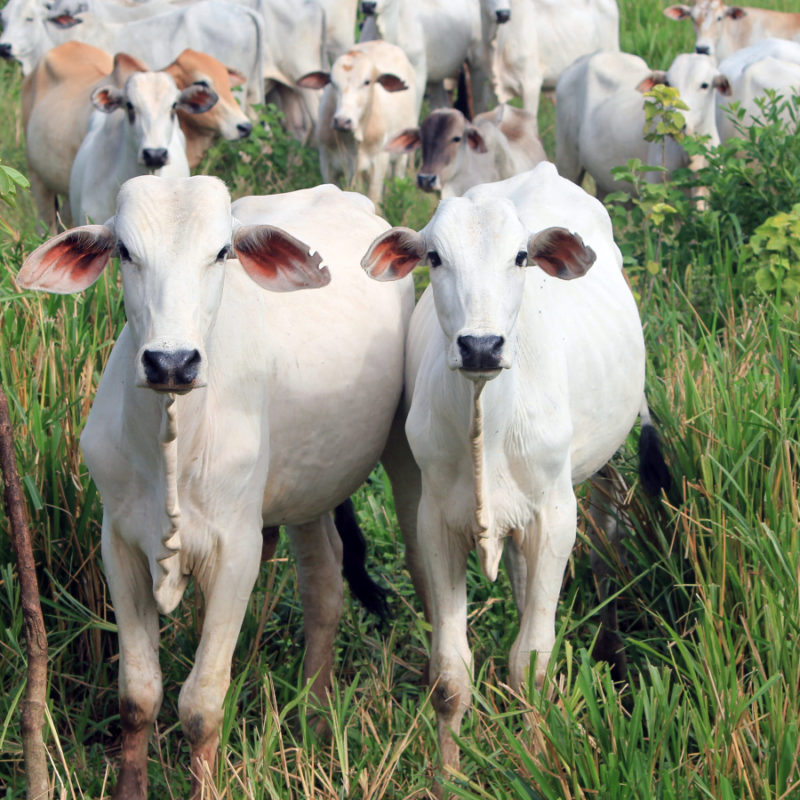XII GTFI Meeting Highlights Advances in Monitoring Indirect Supplier Properties in the Cattle Supply Chain
The Brazilian Indirect Suppliers of Cattle Working Group (GTFI) met in São Paulo on 25th March to discuss and present progress in developing practical solutions to enhance the monitoring of indirect suppliers’ properties in cattle supply chains, aiming to enhance transparency and strengthen the competitiveness of Brazilian cattle production.
During the event, Sandra Catchpole, Leonel Almeida, and Liege Correia—sustainability leads at the meatpacking companies Masterboi, Marfrig, and JBS, respectively—shared their initiatives for monitoring indirect suppliers. These companies utilize platforms to assess supplier compliance, though they still face limitations, particularly due to the lack of transparency of public data regarding these rural properties.
The Federal Prosecutor’s Office (MPF) was represented by Pará state prosecutor Ricardo Negrini, who discussed considerations for the inclusion of indirect suppliers in the agreements between meatpackers and the MPF, known as the Beef Terms of Conduct Adjustment (TAC). Negrini noted that in the latest cycle of audits, 38% of indirect supplier properties were found to be compliant, 27% had potential non-compliance, and 35% were unidentifiable. The majority of compliance issues were linked to deforestation, followed by other types of land-use embargoes.
Watch the Simultaneous English Translation
Watch the Full Event in Portuguese
According to Francisco Beduschi, of the National Wildlife Federation (NWF), which co-coordinates GTFI alongside AdT, one of the most valuable aspects of the group is the exchange of experiences among participants. “Sandra from Masterboi sharing her learning experience from interactions with Marfrig is a great example of how a forum like the GTFI can amplify results,” he noted.
The event also featured a presentation by Fernando Sampaio, Sustainability Director at the Brazilian Beef Exporters Association (ABIEC), who outlined initiatives from the Ministry of Agriculture, Livestock, and Food Supply (MAPA) aimed at improving traceability and disseminating agricultural data.
Next Steps
Last year, the GTFI established a subgroup to develop technical requirements for traceability and monitoring of indirect suppliers. The objective is to create a document that provides guidance for implementing these rules and developing practical solutions.
“This document, currently under development, will be essential for the sector, as it will help guide the programs implemented by meatpackers, government agencies, and industry associations. It will also inform banks, investors, and retailers while serving as a reference for agreements with the Federal Prosecutor’s Office,” explained Cintia Cavalcanti, an analyst with AdT’s Agricultural Supply Chains Program.
Structured around four key pillars, the document will cover:
- (a) Technical foundations for monitoring Tier 1 Indirect suppliers;
- (b) Use of the Animal Transit Guide (GTA) and the Rural Environmental Registry (CAR) for traceability and monitoring;
- (c) Application of GTFI’s Best Practices for socio-environmental analysis of rural properties; and
- (d) Guidelines for supplier reintegration.
About Indirect Suppliers
Indirect suppliers are properties that sell cattle to other properties, which then supply meatpackers. They are a critical link in the beef production chain. Over the past decade, the GTFI has played a key role in advancing discussions and actions related to indirect supplier monitoring. The group has worked to raise awareness about the importance of the issue, explore viable approaches to monitoring indirect suppliers, developed technical solutions to improve monitoring, and agreed on guidance to facilitate aligned efforts to support sectoral action.










